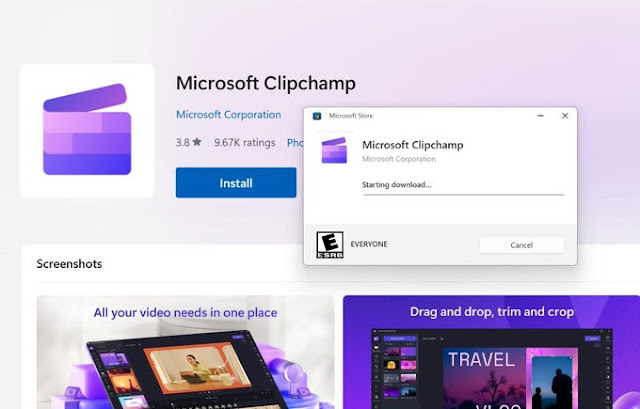Microsoft is streamlining the process of downloading Windows Store apps from the web with a new approach. Introducing an "undocked version of the Microsoft Store," Microsoft offers a more straightforward method resembling a traditional executable for app installation. This innovation aims to simplify the experience of finding and installing Windows Store apps online.
With this enhancement, the process no longer involves launching the Microsoft Store alongside a mini window. Instead, when downloading apps from the web version of the Microsoft Store, users will receive a standalone installer. This eliminates the need to navigate through multiple steps such as clicking install on the web, opening the Microsoft Store via Chrome or Edge, and finally hitting install to complete the process. Instead, users can directly download a lightweight installer, which they can launch to install the desired Microsoft Store app hassle-free.
While Microsoft Store developer Rudy Huyn asserts that the process is now reduced to just two clicks, my own testing reveals that it still involves three clicks to download and install Microsoft Store apps from the web. Initially, you click to download, then you click to open the new lightweight installer, and finally, you need to click install in the prompt that appears. Microsoft's simplification mainly removes the prompt to approve the Microsoft Store being opened through Chrome or Edge.
However, not all Microsoft Store apps seem to support this new lightweight installer. While GroupMe and Snapchat could be downloaded using this method, attempting to download Discord still redirected to the Microsoft Store. Additionally, the standalone installers do not include the full app installer; it is downloaded during the installation process.
Microsoft conducted tests on this new method over the past five months, reporting an average increase of 12 percent in installations and a 54 percent increase in the number of apps launched after installation. This positive outcome for developers has prompted Microsoft to expand the experiment to "more products and markets," as confirmed by Huyn.
source: Microsoft



